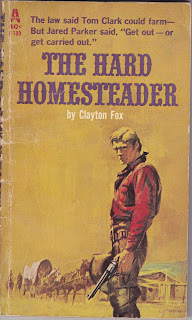 FRANCE—In
the old world and in the new! The France of romance and glory under Henry of
Navarre; of pride and glitter under Louis XIV, in whose reign was builded,
under the silver lilies, that empire—Louisiana—in the vague, dim valley of the
Mississippi across the sea: these are the scenes wherein this drama shall be
played. Through these times shall run the tale which follows. Times when a
man's good sword was ever his truest friend, when he who fought best commanded
most respect. It was the era of lusty men——the weak went to the wall.
FRANCE—In
the old world and in the new! The France of romance and glory under Henry of
Navarre; of pride and glitter under Louis XIV, in whose reign was builded,
under the silver lilies, that empire—Louisiana—in the vague, dim valley of the
Mississippi across the sea: these are the scenes wherein this drama shall be
played. Through these times shall run the tale which follows. Times when a
man's good sword was ever his truest friend, when he who fought best commanded
most respect. It was the era of lusty men——the weak went to the wall.
King and
courtier; soldier and diplomat; lass and lady; these are the people with whom
this story deals. If, therefore, you find brave fighting and swords hanging too
loosely in their sheaths; if honor clings round an empty shadow and the women
seem more fair than honest, I pray you remember when these things did happen,
who were the actors, and the stage whereon they played.
As we can tell from
that opening salvo this novel is different than our standard western fare. If
we include Louis Lamour’s lovely designation of “Frontier” novel rather than the
more limiting label of “Western” more such intriguing gems from the early days
East of the Mississippi come to light.
This 1901 novel bears
the full title of The Black Wolf's Breed A Story of France in the Old World
and the New, happening in the Reign of Louis XIV. Our hero is a hardy frontiersman
of French descent who serves under the governor of the Louisiana Territory,
Bienville. We venture into the wilderness of Louisiana and Mississippi just
after LaSalle made his voyage down the Mississippi River.
We are treated to woodland
warfare with Choctaws by our hero’s side, he is sent on a secret mission to the
courts of France, engages in duels, crosses back across the Atlantic aboard a
privateer to engage in yet more derring do with battles between the French and Spanish
along the Florida Coast all with “painted savages” in the midst.
It is a novel of its
time, and its age shows but there is a verve to it.
A few asides from our
hero give more of the flavor.
“A still
tongue, a clear head and a sharp blade are the tools of Fortune."
The pert
little lads who idled about the hall began to make sport of me concerning my
dress, and laughed greatly at their own wit. I paid no heed to their foolish
gibes, there being no man among them.”
“We men of
the forest accustomed to the rough ways of a camp, and looking not for insult,
are slow to anger.”
"Spit
the thief, run him through," came from one of those behind—for the rear
guard, beyond the reach of steel, was ever loud and brave.
Youth and
health do not long lie idle.
What say
you to an adventure?"
Two fools
like ourselves might perchance stumble blindly upon what a wise man would
overlook,"
"Ah!
a soldier; so interesting in these stupid times, when men are little but women
differently dressed.
He
approached Madame at the table with a semblance of that swagger affected by the
weakling in presence of women.
"M.
Jerome has favored us, you know—we have no drones here," she went on
pleasantly, "and it is the rule at Sceaux that all must join our
merriment."
While not quite as
strong as the best of Rafael Sabatini or Dumas in good translation, it was
mighty pleasing to this reader to encounter the unsheathed sword derring do of the
classic swashbuckler with a hale and hearty frontiersman bearing the blade.

























